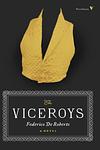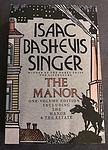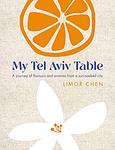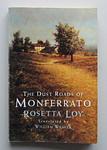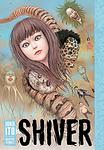The Greatest Polish, Italian "Social & Cultural Fiction" Books of All Time
Click to learn how this list is calculated.
This list represents a comprehensive and trusted collection of the greatest books. Developed through a specialized algorithm, it brings together 300 'best of' book lists to form a definitive guide to the world's most acclaimed books. For those interested in how these books are chosen, additional details can be found on the rankings page.
Genres
Social & Cultural Fiction is a literary category that encompasses novels and stories that delve into the complexities of society and culture, exploring themes such as class, race, gender, and identity within specific social contexts. These narratives often provide a lens through which readers can examine the intricacies of human relationships and the impact of cultural norms and societal structures on individuals and communities. By offering a fictional yet reflective portrayal of real-world social dynamics, this genre invites readers to gain a deeper understanding of the diverse experiences that shape our world. Authors in this category frequently use their characters and settings to comment on contemporary issues, challenge prevailing ideologies, and provoke thought about the possibility of social change, making Social & Cultural Fiction a powerful tool for empathy and a mirror for the ever-evolving human condition.
Countries
Date Range
Reading Statistics
Click the button below to see how many of these books you've read!
Download
If you're interested in downloading this list as a CSV file for use in a spreadsheet application, you can easily do so by clicking the button below. Please note that to ensure a manageable file size and faster download, the CSV will include details for only the first 500 books.
Download-
1. The Leopard by Giuseppe Tomasi di Lampedusa
"The Leopard" is a historical novel set in 19th-century Sicily, during the time of the Italian unification or Risorgimento. It centers on an aging, aristocratic protagonist who is coming to terms with the decline of his class and the rise of a new social order. The narrative weaves together personal drama with the larger political and social upheaval of the time, providing a rich, nuanced portrait of a society in transition. Despite his resistance to change, the protagonist ultimately recognizes its inevitability and the futility of his efforts to preserve the old ways.
-
2. History by Elsa Morante
"History" is a novel set in Rome during World War II and the post-war period, focusing on the life of a widowed schoolteacher and her young son. The narrative explores the struggles of the impoverished family against the backdrop of war, including the Nazi occupation of Rome, the Allied bombing, and the rise of Fascism. The book also delves into the themes of love, loss, and survival, offering a poignant depiction of the human condition.
-
3. The Garden of the Finzi-Continis by Giorgio Bassani
Set in Ferrara, Italy during the late 1930s, the book tells the story of the Finzi-Continis, a wealthy, aristocratic Jewish family who live in a secluded mansion with a beautiful, walled garden. The narrator, a young middle-class Jew, becomes infatuated with the family's daughter, Micoleta. As the Fascist regime's anti-Jewish laws become increasingly oppressive, the idyllic garden becomes a sanctuary for the local Jewish community, including the narrator. Despite the looming threat of the Holocaust, the family remains oblivious to their impending fate, leading to a tragic end.
-
4. The Moon and the Bonfires by Cesare Pavese
The story follows a man who, after making a fortune in America, returns to his small hometown in Italy after World War II. He finds the place significantly changed, with many of his old friends either dead or drastically different. As he tries to reconcile his memories with the new reality, he also grapples with his own identity and the impact of the war on his home. The narrative explores themes of change, identity, and the lasting effects of war.
-
5. I Malavoglia by Giovanni Verga
"I Malavoglia" is a tragic tale of a poor Sicilian family who struggles to maintain their dignity and values in the face of poverty, death, and societal pressure. The family's patriarch is determined to keep their ancestral home and to improve their lot through hard work and sacrifice. However, their efforts are thwarted by a series of unfortunate events, including the loss of their fishing boat, the death of family members, and the dishonor of their only daughter. Despite these hardships, the family perseveres, embodying the resilience and determination of the Sicilian people.
-
6. My Brilliant Friend by Elena Ferrante
This novel tells the story of two friends, Elena and Lila, growing up in a poor neighborhood in Naples, Italy in the 1950s. Their intense, complicated friendship is marked by competition, mutual respect, and deep affection. As they navigate the challenges of adolescence, including family drama, academic struggles, and romantic entanglements, their bond is tested and transformed. The narrative explores themes of female friendship, social class, education, and the struggle for personal autonomy in a patriarchal society.
-
7. The Painted Bird by Jerzy Kosinski
"The Painted Bird" is a dark and harrowing novel set in Eastern Europe during World War II. The story follows a young, unnamed boy of unknown ethnicity who is sent by his parents to live in a remote village for safety. However, he is instead subjected to brutal violence, abuse, and superstition by the superstitious peasants. The book explores themes of survival, human cruelty, and the loss of innocence in the face of war and hatred.
-
8. This Way for the Gas, Ladies and Gentlemen by Tadeusz Borowski
This book is a collection of short stories based on the author's experiences as a prisoner in Auschwitz during the Holocaust. Each story provides a harrowing, yet matter-of-fact, account of life in the concentration camp, from the brutal work details to the constant threat of death. The author's stark and unflinching portrayal of the horrors of Auschwitz serves as a powerful testament to the human capacity for survival and resilience in the face of unimaginable cruelty.
-
9. The Time of Indifference by Alberto Moravia
This novel explores the dynamics of an upper-middle-class Italian family facing financial ruin. The story focuses on the emotional indifference and moral decay among family members, as they engage in affairs and manipulative behavior to secure their social status. As the family's fortunes dwindle, their lack of empathy and moral integrity becomes increasingly evident, offering a critique of bourgeois values and the corrosive effects of apathy and materialism.
-
10. Family Sayings by Natalia Ginzburg
"Family Sayings" is a semi-autobiographical novel that explores the author's experiences growing up in a large Jewish-Italian family in the pre and post-World War II era. The narrative is a collection of family anecdotes, sayings, and stories that illustrate the dynamics, relationships, and history of the family. The book also provides a glimpse into the political and social changes in Italy during this period, including the rise of fascism and the impact of the war. The author's poignant and evocative storytelling brings to life a world that is both deeply personal and universally relatable.
-
11. Insatiability by Stanisław Ignacy Witkiewicz
The novel is a dystopian narrative set in a future where a new Asian empire has conquered Europe. The story follows a young Polish man who, while initially indulging in hedonistic pursuits, becomes increasingly disillusioned with the world around him. As the new empire introduces a mysterious substance known as Murti-Bing pills, which create a sense of contentment and indifference in the populace, the protagonist grapples with the loss of individuality and the erosion of human spirit in society. The narrative is a critique of totalitarian regimes and the dangers of mass conformity.
-
12. The Harvesters by Cesare Pavese
"The Harvesters" is an evocative tale set in the rural landscapes of Italy in the early 20th century. The narrative follows a young man who, after a life of hardship and poverty, leaves his village to seek a better life in the city. However, he soon finds himself drawn back to his roots, yearning for the simplicity and authenticity of rural life. The novel explores themes of identity, belonging, and the eternal conflict between progress and tradition, offering a poignant portrayal of the human condition.
-
13. Conversations in Sicily by Elio Vittorini
"Conversations in Sicily" is a semi-autobiographical novel that explores the journey of a man returning to his native Sicily after many years away. The protagonist's journey is both physical and emotional as he reconnects with his past, his culture, and his mother, while also confronting his disillusionment with the political and social realities of the time. The narrative is filled with poetic and philosophical dialogues, providing a deep exploration of Sicilian life, identity, and the human condition.
-
14. The Viceroys by Federico De Roberto
"The Viceroys" is a historical novel set in 19th century Sicily, during the Italian unification. The story revolves around the aristocratic Uzeda family, who are trying to retain their power and influence in the changing political landscape. The narrative explores themes of power, corruption, and the decline of the aristocracy through the lens of this manipulative and scheming family. The book is a critique of the social and political system of the time.
-
15. The Manor by Isaac Bashevis Singer
"The Manor" depicts the complex interplay between Jews and Polish nobility in 19th century Poland. The narrative focuses on the lives of two Jewish families, the Kalinowskis and the Dembowskis, who are tied together by marriage. As they navigate the political and social changes of the time, the characters grapple with issues of faith, tradition, assimilation and the struggle for survival. The book provides a vivid portrayal of Jewish life in Poland during a period of significant change and upheaval.
-
16. The Manor, The Estate, The Family Moskat by Isaac Bashevis Singer
The book is a sweeping saga that explores the multigenerational story of a Jewish family living in Poland from the late 19th century through the eve of World War II. It delves into the lives, loves, and losses of the family members as they navigate the changing social and political landscape. The narrative captures the tension between tradition and modernity, the struggle for survival amidst anti-Semitism, and the impact of historical events on personal identities and destinies. Through vivid characterizations and rich detail, the novel paints a portrait of a community and a way of life on the brink of profound change.
-
17. The City Of The Sun by Tommaso Campanella
"The City of the Sun" is a philosophical work that presents a visionary society where goods, women, and children are held in common. It describes a utopian city governed by a theocratic and philosophical elite, where the inhabitants live harmoniously, dedicating their lives to knowledge, virtue, and the collective well-being. The city is structured with concentric walls adorned with scientific and artistic knowledge, reflecting the society's dedication to intellectual enlightenment and the eradication of ignorance and vice. The work serves as a critique of European society of the time, proposing a radical alternative that emphasizes communal living, education, and the blending of religion and science as the foundations of a just and prosperous community.
-
18. The Neapolitan Novels by Elena Ferrante
"The Neapolitan Novels" is a four-part series that explores the intricate and lifelong friendship between two women from Naples, Italy. The series spans several decades, beginning in the 1950s, and provides a detailed examination of the women's lives, struggles, and the societal pressures they face. The narrative delves into themes of identity, friendship, love, violence, and socio-political changes in post-war Italy. The series is known for its rich character development and vivid portrayal of female friendship.
-
19. The Beautiful Mrs. Seidenman by Andrzej Szczypiorski
Set in Nazi-occupied Warsaw, the novel tells the story of Mrs. Seidenman, a blonde, blue-eyed Jewish widow who is arrested by the Gestapo. The narrative revolves around the eclectic group of characters in her life, including a young man who is in love with her and a lawyer who is determined to save her. The book provides a vivid and poignant depiction of life under Nazi rule, exploring themes of survival, resistance, and the resilience of the human spirit.
-
20. Fontamara by Ignazio Silone
This novel is set in a small, impoverished village in Italy during the Fascist regime. It tells the story of the villagers, known as "Fontamaresi," who are struggling to survive under the oppressive government policies and the exploitation by the local elite. The narrative focuses on their attempts to resist and fight back against the injustices they face, despite the overwhelming odds. Through the eyes of its characters, the book explores themes of poverty, oppression, resistance, and the human spirit's resilience. It is a poignant critique of Fascism and a testament to the strength of community and solidarity in the face of tyranny.
-
21. All Our Yesterdays by Natalia Ginzburg
"All Our Yesterdays" is a poignant narrative that delves into the lives of an Italian family and their acquaintances, set against the backdrop of Fascism and World War II. The story explores the complex web of relationships, personal struggles, and societal changes as the characters navigate love, loss, and the impact of political turmoil. Through a series of interconnected tales, the novel paints a vivid portrait of the human condition, highlighting the resilience of the spirit amidst the ravages of war and the passage of time.
-
22. A World Apart by Gustaw Herling-Grudziński
"A World Apart" is a powerful memoir that recounts the author's experiences as a political prisoner in a Soviet labor camp during World War II. Through vivid and harrowing descriptions, the book exposes the brutality and inhumanity of the camp system, as well as the resilience and strength of the prisoners. It serves as a haunting reminder of the atrocities committed during this dark period of history and the enduring human spirit.
-
23. The Dust Roads Of Monferrato by Rosetta Loy
Set against the backdrop of rural Italy, the novel weaves a rich tapestry of family saga and historical transformation. It follows the lives of several generations of a family in the Monferrato region, as they navigate the tumultuous changes of the 20th century. Through wars, social upheaval, and personal trials, the characters' stories intertwine with the dusty roads of their homeland, painting a vivid portrait of a community bound by tradition yet facing the inevitable march of progress. The narrative delves into themes of memory, identity, and the enduring impact of the past on the present, all while celebrating the beauty and resilience of the Italian countryside.
-
24. Flights by Olga Tokarczuk
"Flights" is a fragmented and philosophical novel that explores the theme of travel and movement. Through a series of interconnected stories and reflections, the book delves into the nature of human existence, the complexities of modern life, and the desire for freedom and escape. With its poetic language and unconventional structure, "Flights" invites readers to contemplate the transient nature of time, the significance of journeys, and the search for meaning in a world constantly in motion.
-
25. Selected Stories by I. L. Peretz
"Selected Stories" is a collection of tales that delve into the complexities of Jewish life, blending elements of folklore, religious tradition, and modernity. The stories are set against the backdrop of Eastern Europe and offer a rich tapestry of characters, from humble villagers to wise rabbis, all portrayed with a deep sense of humanity and a touch of humor. The author explores themes of faith, morality, and the struggle for justice, often employing allegory and parable to convey profound truths about the human condition. This anthology serves as a window into the cultural and social dynamics of a bygone era, reflecting the author's keen insight into the challenges and triumphs of his people.
Reading Statistics
Click the button below to see how many of these books you've read!
Download
If you're interested in downloading this list as a CSV file for use in a spreadsheet application, you can easily do so by clicking the button below. Please note that to ensure a manageable file size and faster download, the CSV will include details for only the first 500 books.
Download












